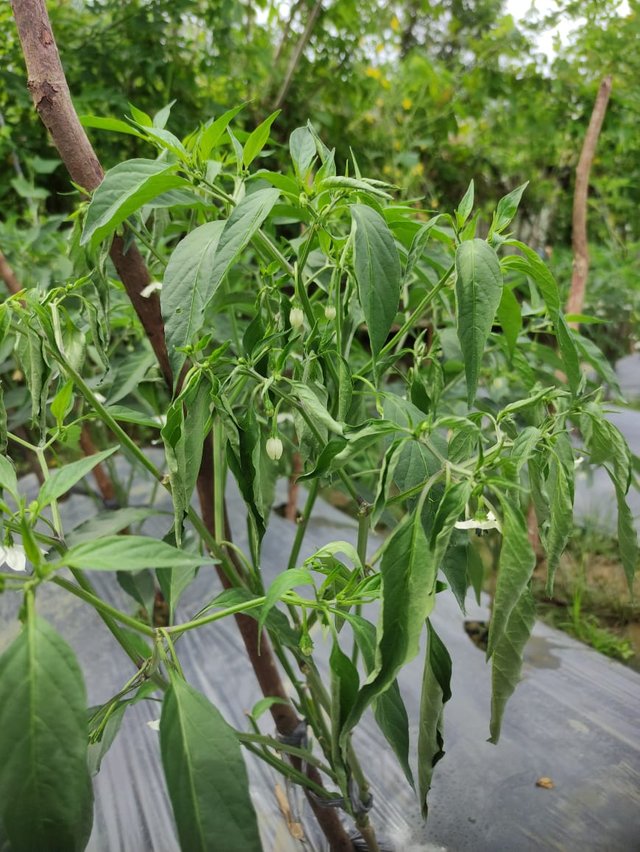Fusarium wilt is a disease of chili plants that is feared by chili farmers
Fusarium wilt is an infection caused by the fungus (Fusarium oxysporum), which affects various plants such as tomatoes, bananas, and chili peppers. This fungus enters through the plant’s roots and clogs the xylem vessels, obstructing the flow of water and nutrients, leading to wilting leaves and the gradual death of the plant. The disease typically thrives in moist soil and warm temperatures.

Prevention of Fusarium wilt:
- Use of resistant varieties: Plant crops that are resistant to Fusarium.
- Sanitation: Clean agricultural tools and dispose of infected plant debris.
- Crop rotation: Rotate crops with those that are not susceptible to Fusarium.
- Soil management: Ensure good soil drainage and maintain optimal soil pH levels.
- Soil sterilization: Use solarization or chemical methods to reduce the presence of the fungus in the soil.
The three most effective methods to control Fusarium fungus are:
Use of resistant varieties: Planting crops that are naturally resistant to Fusarium is one of the best ways to prevent infection, as these plants can withstand the fungus without showing symptoms.
Soil sterilization: Sterilizing the soil using solarization (heating the soil using plastic covers) or chemical treatments can significantly reduce the presence of Fusarium spores in the soil.
Crop rotation: Regularly rotating crops with non-susceptible plants prevents the buildup of Fusarium in the soil, reducing the risk of future infections.
The three most effective fungicide active ingredients for controlling Fusarium fungus are:
Carbendazim: A systemic fungicide that inhibits the growth of Fusarium by interfering with its cell division.
Thiophanate-methyl: A broad-spectrum fungicide that is highly effective against Fusarium, working by disrupting fungal cell processes.
Trifloxystrobin: A strobilurin-based fungicide that stops the growth of Fusarium by inhibiting mitochondrial respiration in the fungus.
Trichoderma: is a beneficial fungus used as a biological control agent against pathogens like (Fusarium). It works by outcompeting harmful fungi for space and nutrients, producing enzymes that destroy pathogens, and boosting the plant’s natural defenses. It’s an eco-friendly option for managing soil-borne diseases.